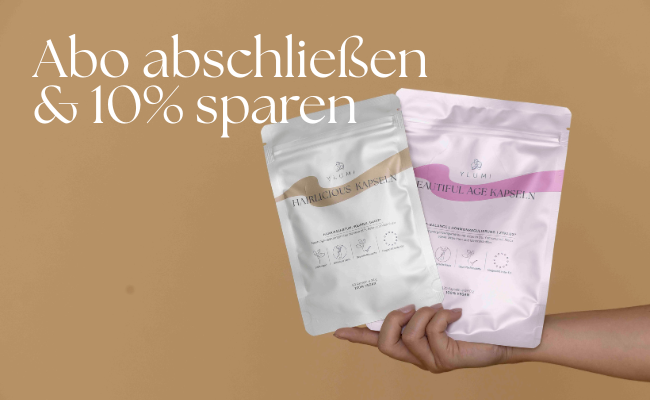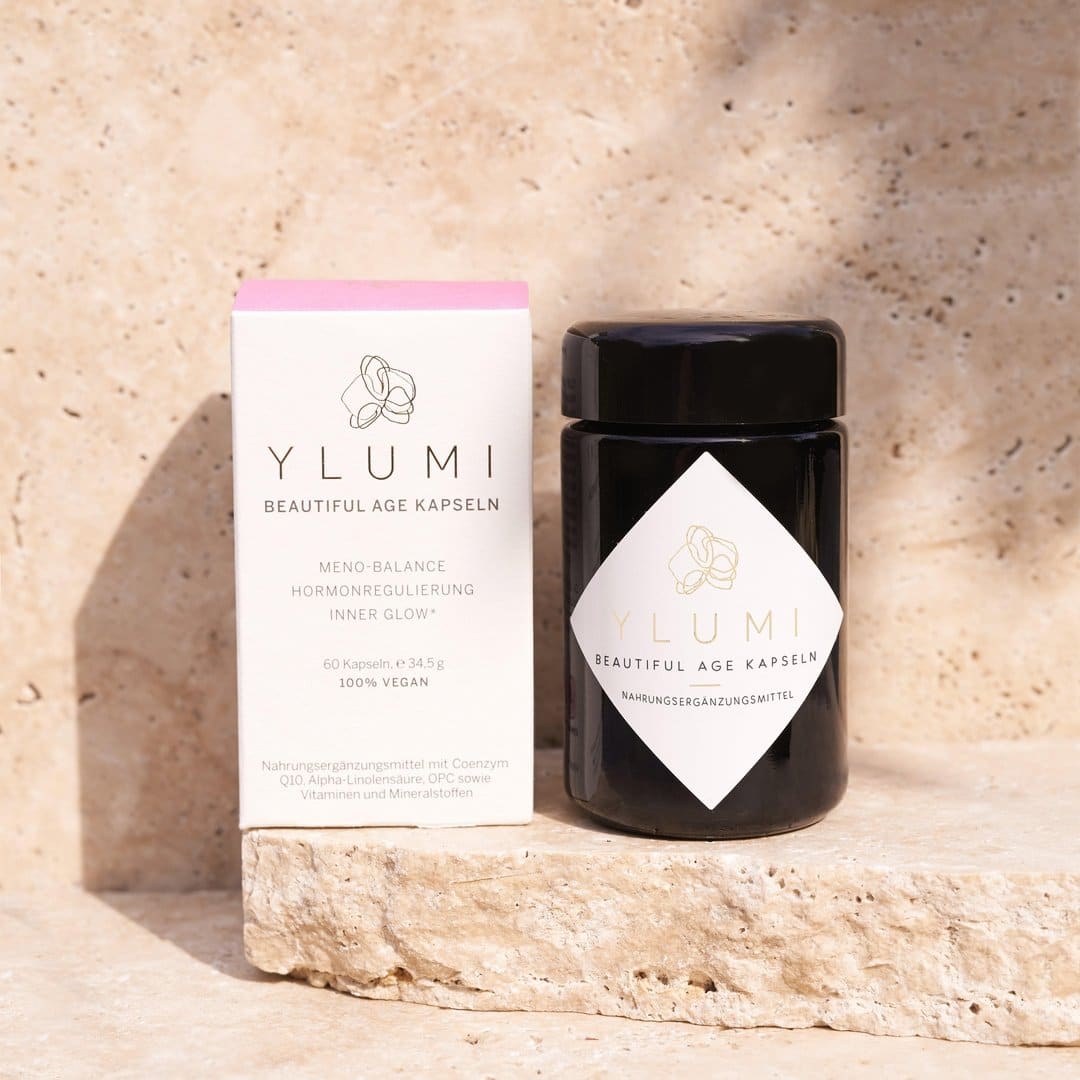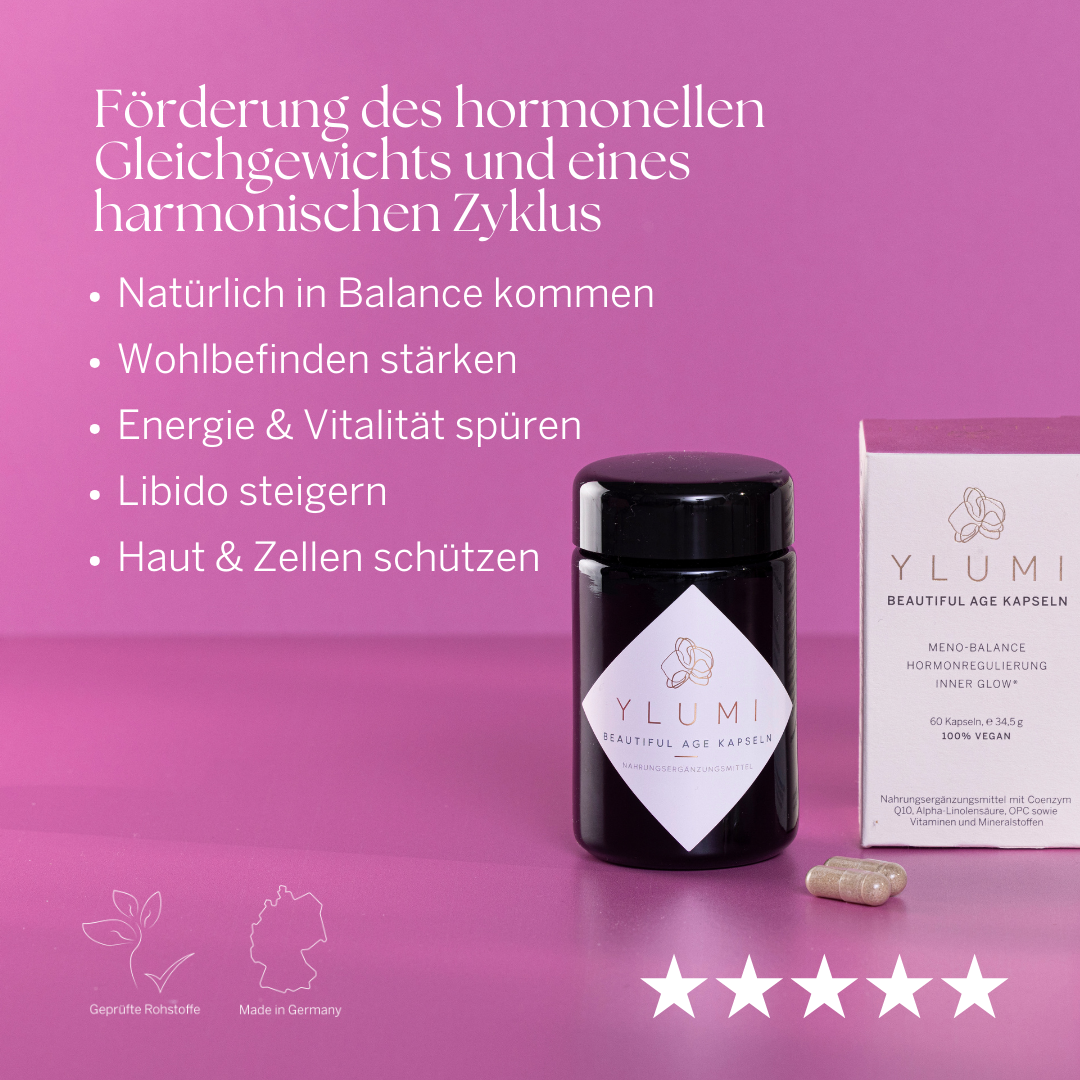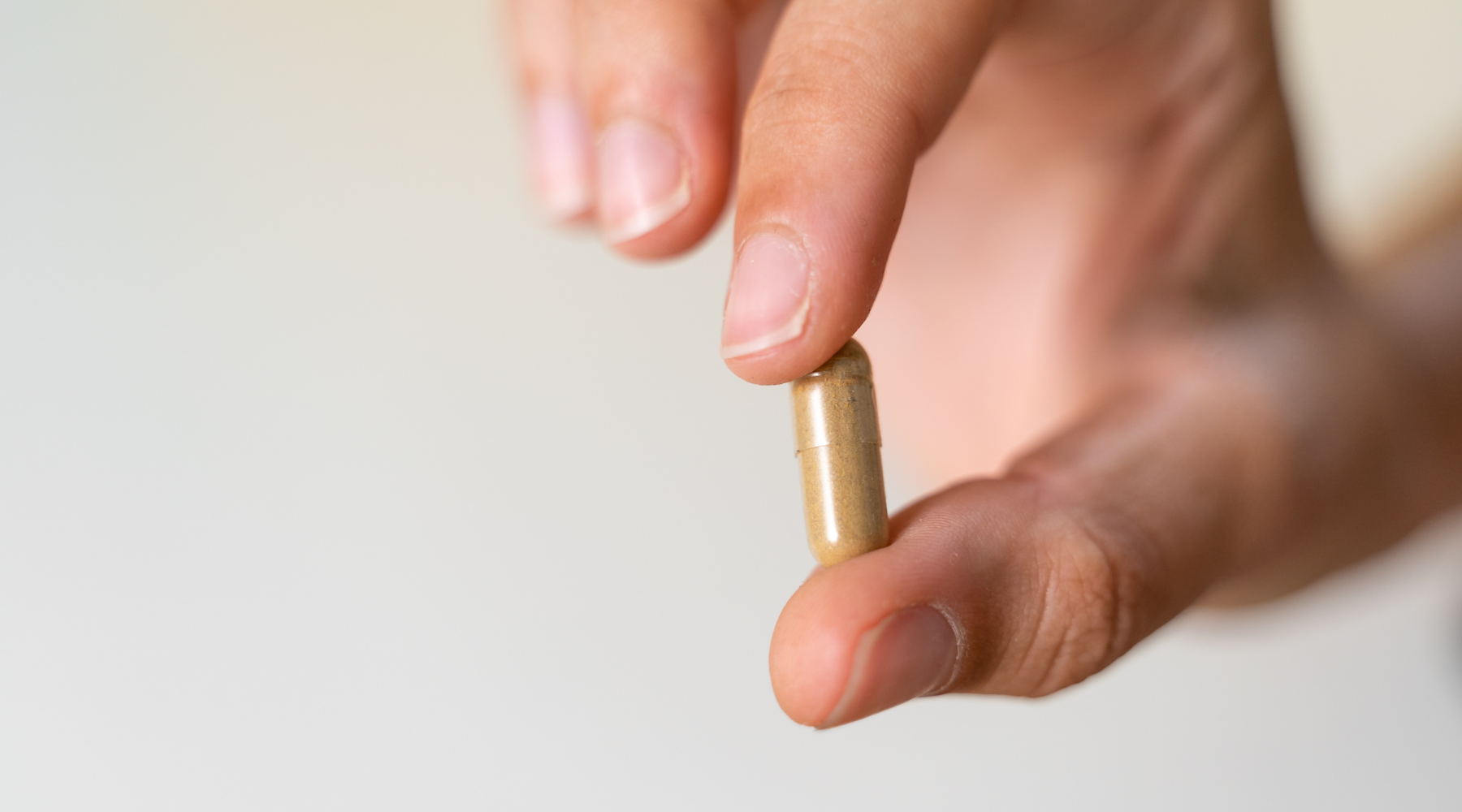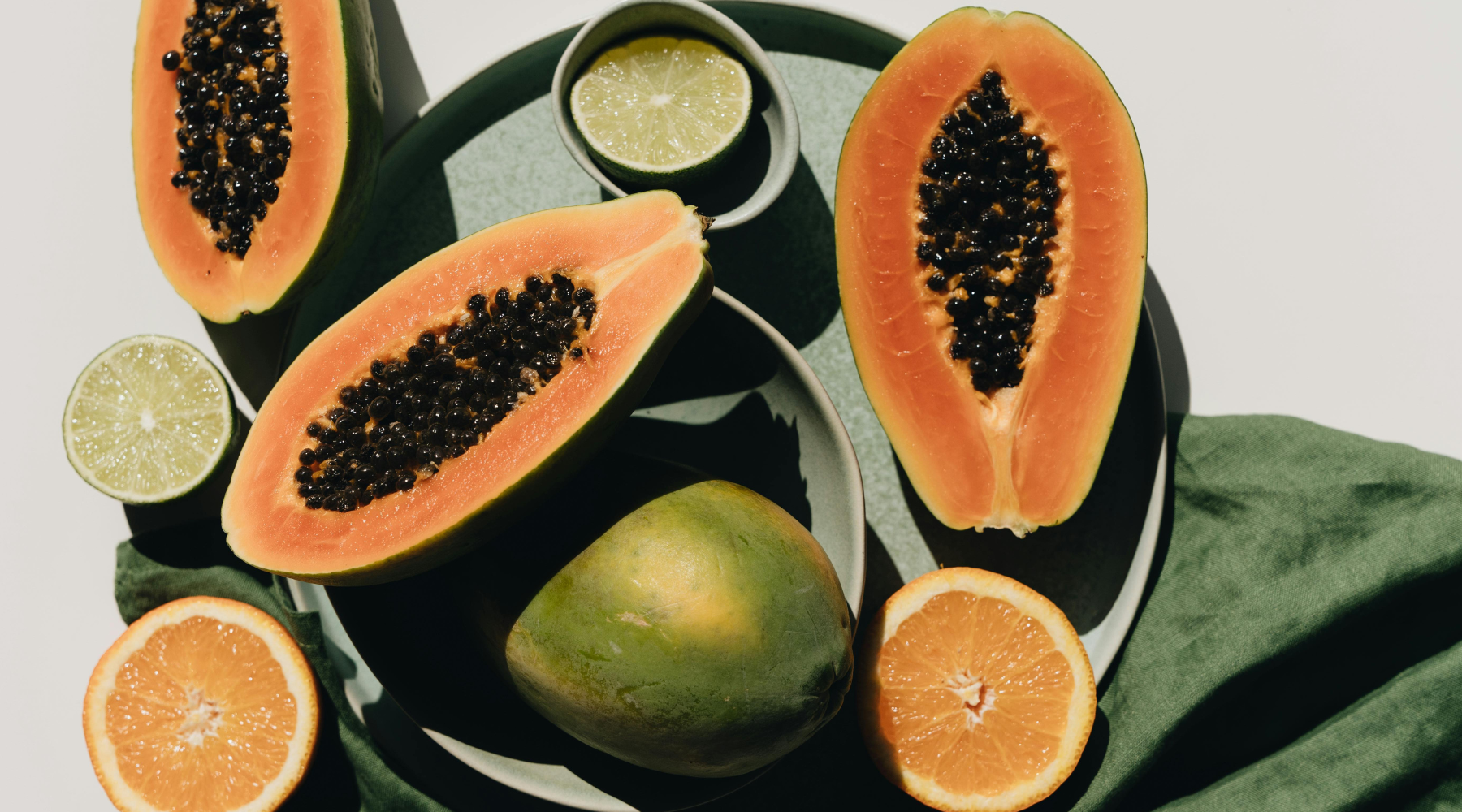
Nutrition during menopause: counteract symptoms naturally
Menopause is a natural phase in every woman's life, but it is often accompanied by numerous physical and emotional changes. A healthy diet can play a key role in alleviating these symptoms and improving overall well-being. In this blog post, we take a detailed look at menopause, what happens in the body, the different stages, and how a balanced diet and traditional healing methods such as TCM (Traditional Chinese Medicine) and Ayurveda can help alleviate symptoms.
This is what happens in the body during menopause
Menopause, also known as perimenopause, is the phase in which the female body gradually reduces its production of estrogen and progesterone. This typically occurs between the ages of 45 and 55, but can vary from individual to individual and occur earlier. The ovaries then stop producing eggs, and menstrual cycles become irregular until they eventually cease altogether. These hormonal changes lead to a range of physical and emotional symptoms, which can vary in severity from woman to woman.
Symptoms of menopause
The most common symptoms of menopause include:
• Hot flashes: Sudden waves of heat accompanied by a rapid increase in body temperature.
• Sleep disorders: difficulty falling asleep or waking up frequently at night
• Mood swings: Increased irritability , depression and anxiety.
• Weight gain: Especially in the abdominal area, due to the changed hormonal balance.
• Dry skin and mucous membranes: This often affects the skin , eyes and the intimate area.
• Bone loss: Increased risk of osteoporosis due to falling estrogen levels.
What phases are there?
Menopause is divided into three main phases:
1. Perimenopause: This phase can begin several years before menopause itself. Menstrual cycles become irregular, and the first symptoms appear.
2. Menopause: This is the time of the last menstrual period. If a woman has not had a period for 12 months, she is said to be in menopause.
3. Postmenopause: This phase begins after menopause and lasts the rest of life. Symptoms may subside, but the risk of certain health problems such as osteoporosis and cardiovascular disease increases.
Healthy nutrition and its influence on physical changes and complaints
A balanced diet can help mitigate hormonal changes and reduce associated symptoms. Studies show that a diet rich in plant-based foods, healthy fats, and high-fiber foods can have a positive impact on menopausal symptoms. According to a study published in the Journal of Clinical Endocrinology & Metabolism , a high-fiber diet and adequate intake of omega-3 fatty acids can reduce the risk of postmenopausal symptoms and chronic diseases.
Which foods and nutrients can help?
Phytoestrogens: These plant substances act similarly to estrogen in the body. They are found in foods such as soybeans, flaxseed, and whole grains and can help relieve hot flashes.
Calcium and vitamin D: These nutrients are crucial for bone health, especially in postmenopausal women to prevent osteoporosis.
Omega-3 fatty acids: They are found in fatty fish, walnuts, and flaxseed and can have anti-inflammatory effects and reduce the risk of cardiovascular disease.
Magnesium: Helps with sleep problems and muscle cramps and is found in green leafy vegetables, nuts, and whole grains. •
Antioxidants: Vitamin E, vitamin C, and beta-carotene can help reduce skin problems and strengthen the immune system.
Wisdom from TCM and Ayurveda for menopausal symptoms
Traditional Chinese Medicine (TCM) and Ayurveda offer traditional approaches to alleviate the symptoms of menopause. TCM places particular emphasis on the flow of energy in the body. Acupuncture, herbs, and a diet that supports yin-yang balance are key approaches. In Ayurveda, the menopausal transition is considered a "vata" phase, during which dry and light qualities predominate in the body. Recommendations include consuming warming spices such as ginger and cardamom and practicing abhyanga (oil massages) to promote balance.
Herbal remedies
In addition to dietary measures, there are numerous herbal remedies that can help alleviate the symptoms of menopause:
Black cohosh (Cimicifuga racemosa): This herb is often used to relieve hot flashes and mood swings.
St. John's Wort: Helps with mild to moderate depression and mood swings.
Chasteberry (Vitex agnus-castus): Can help regulate hormone levels and relieve symptoms.
Maca (Lepidium meyenii): Maca is a root native to the Andes that has traditionally been used to increase energy, well-being, and hormonal balance. Studies suggest that maca may help reduce hot flashes, mood swings, and sleep disturbances by regulating hormone levels.
Yam (Dioscorea villosa): Yam contains diosgenin, a plant substance that can serve as a precursor to progesterone production in the body. This can help balance the hormonal imbalances of menopause and relieve symptoms such as hot flashes and dry skin.
Cordyceps (Cordyceps sinensis): This medicinal mushroom from TCM is valued for its adaptogenic properties. It can increase energy, support libido, and strengthen the immune system, which can be particularly helpful during menopause.
Red clover: Contains phytoestrogens, which have similar effects to estrogen and can help with hot flashes.
Alpha-linolenic acid (ALA) from flaxseed oil: ALA is a plant-based omega-3 fatty acid that has anti-inflammatory properties and supports heart health. It may help reduce the risk of cardiovascular disease, which increases after menopause.
Conclusion and the best 5 tips summarized
Menopause is a challenging time, but through a balanced diet and the application of wisdom from TCM and Ayurveda, symptoms can be significantly alleviated.
Top 5 tips:
1. Incorporate phytoestrogens into your diet: They can help balance hormonal fluctuations.
2. Ensure adequate calcium and vitamin D: This is essential for bone health.
3. Consume omega-3 fatty acids: They support heart health and have anti-inflammatory properties.
4. Use herbal remedies: Such as black cohosh or chasteberry to relieve symptoms.
5. Integrate TCM and Ayurvedic practices: These can help bring the body into holistic balance.
A targeted, nutrient-rich diet combined with traditional healing methods can make a big difference and help you navigate this phase of life with greater well-being and balance.
Sources:
• JC Endocrinology & Metabolism: “Dietary Fiber and Risk Reduction in Postmenopausal Women”: https://academic.oup.com/jcem/article/
• Complementary and alternative medicine for menopausal symptoms: a review of randomized, controlled trials: https://pubmed.ncbi.nlm.nih.gov/12435217/
• Chinese herbal medicine for menopausal symptoms: https://


